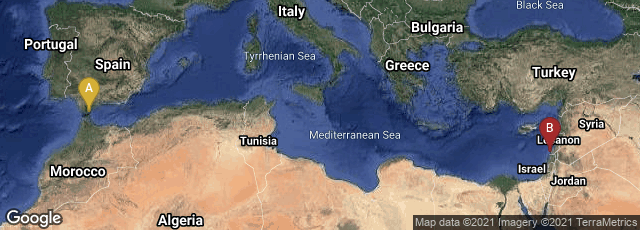
A: Gibraltar, Gibraltar, B: Sour, South Governorate, Lebanon
Reconstructed navis lusoria, a type of small military vessel of the late Roman Empire that served as a troop transport, at the Museum of Ancient Seafaring, Mainz.
"Water is to all primitive systems of transport what railways have been in modern times: the one, indispensable artery for heavy freight. Once a cargo left the waters of the Mediterranean or of a great river, its brisk and inexpensive progress changed to a ruinous slow motion. It cost less to bring a cargo of grain from one end of the Mediterranean to another than to carry it another seventy-five miles inland.
"So the Roman empire always consisted of two, overlapping worlds. Up to A D 700, great towns by the sea remained close to each other: twenty days of clear sailing would take the traveller from one end of the Mediterranean, the core of the Roman world, to the other. Inland, however, Roman life had always tended to coagulate in little oases, like drops of water on a drying surface. The Romans are renowned for the roads that ran through their empire; but the roads passed through towns where the inhabitants gained all that they ate and most of what they used, from within a radius of only thirty miles" (Brown, The World of Late Antiquity AD 150-750 [1989] 12-13).